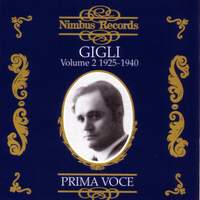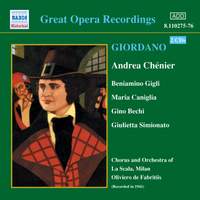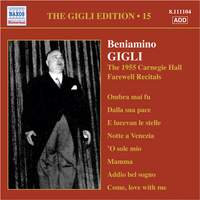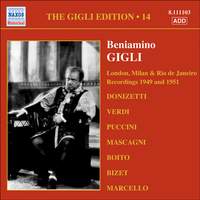
Beniamino Gigli (Tenor)
Born: 20th March 1890, Recanati,
Died: 30th November 1957, Rome
Nationality: Italian
Widely recognised as one of the greatest and most influential tenors of the twentieth century, Beniamino Gigli was born in 1890 in Recanati, Italy, and was the son of a music-loving shoe-maker who persuaded him to learn a trade alongside his vocal studies (the young Gigli worked as a carpenter and a tailor before his singing breakthrough). At 24 he took first prize in a singing-competition in Parma, and within the next three years had debuted in Palermo, Naples, Rome, at in Milan at La Scala (all as Faust in Boito’s Mefistofele). He first appeared at the Metropolitan Opera in 1920 (again as Boito’s Faust), and until a dispute regarding a pay-cut ended his relationship with the house in 1932 he appeared there regularly in roles such as Edgardo (Lucia di Lammermoor), Alfredo La traviata, and Canio Pagliacci (he would be persuaded to return to sing a run of performances as Radames in Aida in 1939, by which time he was branching out into heavier repertoire).
Browse: Beniamino Gigli
Recent Best Sellers: Beniamino Gigli
-
CD: $9.00Download from $10.00
-
6 CDs: $25.75
-
2 CDs: $20.50Download from $16.00
-
RecommendedDownload from $60.00
-
CD: Original price ($11.75) Reduced price $9.25Download from Original price ($10.25) Reduced price $8.00
-
CD: Original price ($11.75) Reduced price $9.25Download from Original price ($13.00) Reduced price $10.00








